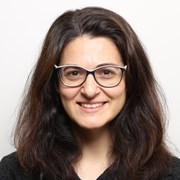Pupils will be prepared to respond quickly and efficiently to demanding and challenging situations on board and they will be ready to operate in difficult situations before performing them. The gamification of the XR training will increase engagement and motivation among the pupils, leading to more effective learning outcomes. By incorporating XR technology into maritime education, Ready2Respond aims to bridge the gap between the demands of the shipping industry and the education offered to pupils in naval schools.
The proper education of the maritime personnel is recognized as a sine qua non in a context of the new trends, challenges and complexity of the shipping industry. There is a mismatch between the demands of the shipping industry and the graduates from the educational institutions. Very little on the job training and practice is offered by formal Education to pupils (aged 15-18) who want to follow a career in the maritime sector.
The need is twofold:
- The maritime education offered must be improved.
- There is a shortage of highly qualified personnel in the shipping industry.
Recent technological advancements are creating new opportunities for evolving current maritime training tools and methods. Ready2Respond aims to improve maritime education for pupils aged 15-18 years old, using XR technology. XR technology (encompassing AR, VR, and MR) has enormous potential due to different, innovative educational tools that can be easily adopted and used by the students of naval schools in Greece and Norway. The training also targets aspects that pupils haven’t been taught during their mandatory public education.
For SINTEF, it is strategically important and a high priority to address the challenges of SDG4 and ensure inclusive and equitable quality education and promote lifelong learning opportunities for all. SINTEF Digital (Technology Management) will design, develop, and evaluate a series of supporting mechanism for the XR application including visualizations of gamification elements and gamified learning analytics. We will organize participatory workshops with teachers and pupils in Greek and Norwegian naval schools, and we will analyze the results from two evaluation studies.

